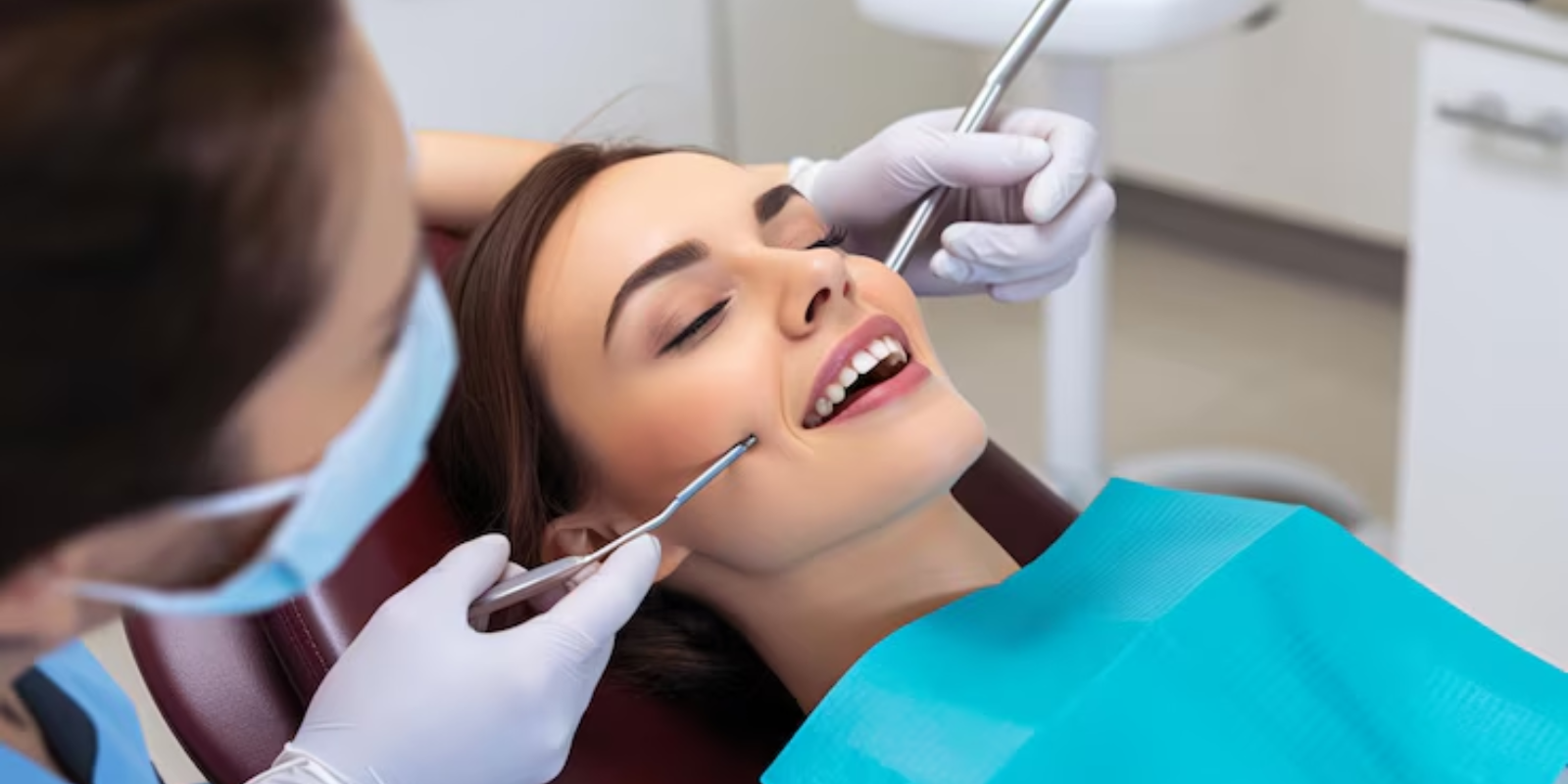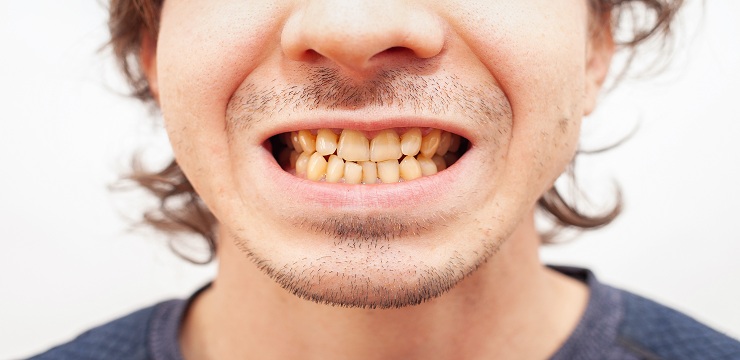$99 New Patient Special - Includes Exam, X-Ray and Basic Cleaning
The Importance of Regular Dental Check-ups After Teeth Whitening

Teeth whitening has become one of the most popular cosmetic dental procedures in recent years. Whether through professional treatments at the dentist’s office or over-the-counter products, many people seek a brighter, whiter smile. However, achieving that dazzling smile is just the beginning; maintaining it requires ongoing care and attention, particularly through regular dental check-ups. This blog post will delve into why regular dental check-ups are essential after teeth whitening, the benefits they provide, and how to maximize the longevity of your newly whitened teeth.
Understanding Teeth Whitening
Before discussing the importance of dental check-ups after whitening, it’s essential to understand the various teeth whitening methods available. The two primary types are:
1. In-Office Whitening
Professional whitening treatments performed by a dentist are generally the most effective and long-lasting. This process often involves:
- Strong bleaching agents: Dentists use higher concentrations of hydrogen peroxide or carbamide peroxide, ensuring more significant results in a shorter time.
- Custom-fit trays: This ensures that the whitening agent stays on your teeth and minimizes gum irritation.
- Light activation: Some treatments use special lights to enhance the effectiveness of the whitening agent.
2. At-Home Whitening Kits
Over-the-counter products, such as strips, gels, or trays, offer a more convenient and cost-effective solution, but results may vary. These kits typically contain lower concentrations of bleaching agents and may take longer to achieve noticeable results.
Regardless of the method chosen, the goal is the same: to remove stains and discoloration, resulting in a brighter, more attractive smile. However, with any cosmetic dental procedure, follow-up care is critical.
Why Regular Dental Check-ups Are Essential After Teeth Whitening
1. Monitoring Tooth Health
After teeth whitening, your teeth may be temporarily more sensitive, and the enamel may require careful monitoring. Regular dental check-ups allow your dentist to assess:
- Tooth Sensitivity: Some patients experience heightened sensitivity after whitening. Your dentist can recommend ways to manage this sensitivity and ensure it does not indicate a more significant problem.
- Enamel Integrity: Whitening can temporarily affect enamel strength. Regular check-ups allow your dentist to monitor the enamel and recommend protective measures if necessary.
2. Preventing Dental Issues
Whitening treatments can make underlying dental problems more noticeable. Regular check-ups help prevent potential issues by:
- Identifying Cavities: Whitening treatments can highlight existing cavities. Regular visits will allow your dentist to catch and treat cavities early, preventing further decay.
- Assessing Gum Health: Teeth whitening can lead to gum irritation. Regular check-ups help ensure that your gums remain healthy and free from disease.
3. Maintaining Your Results
Teeth whitening is not a permanent solution; results can fade over time. Regular dental visits can help:
- Provide Touch-Ups: Dentists can offer in-office touch-up treatments or prescribe at-home kits to maintain the brightness of your smile.
- Evaluate Your Whitening Regimen: Your dentist can suggest the best over-the-counter products or procedures to extend the effects of whitening.
4. Professional Cleanings
During regular check-ups, your dentist or dental hygienist will perform professional cleanings, which are vital for maintaining a bright smile. Cleanings remove:
- Plaque and Tartar: Even with a solid oral hygiene routine, plaque can build up over time. Professional cleanings remove plaque and tartar, helping to prevent discoloration and staining.
- Surface Stains: Cleanings can eliminate surface stains that may develop after whitening, helping maintain your results.
5. Personalized Oral Health Advice
Regular dental visits allow your dentist to provide personalized advice tailored to your unique dental health and whitening experience:
- Dietary Recommendations: Your dentist can advise on foods and beverages to avoid that may cause staining after whitening.
- Oral Hygiene Tips: Personalized oral care tips can help you maintain your results and keep your teeth healthy.
6. Addressing Lifestyle Factors
Your dentist can discuss lifestyle factors that may affect your teeth whitening results:
- Tobacco Use: Smoking or chewing tobacco can lead to significant staining. Your dentist can provide resources and support to help you quit tobacco.
- Dietary Habits: Foods and drinks such as coffee, tea, red wine, and dark sauces can stain teeth. Regular check-ups can help you monitor your diet and make adjustments as needed.
7. Long-Term Cost Savings
Investing in regular dental check-ups can save you money in the long run. By catching issues early, you can avoid more extensive treatments down the line:
- Preventive Care: Regular check-ups can prevent cavities and gum disease, reducing the need for fillings, root canals, or other costly procedures.
- Extended Whitening Results: Maintaining your whitening results through professional care can save you from needing to undergo expensive whitening treatments repeatedly.
Best Practices for Maintaining Whitened Teeth
To extend the effects of your teeth whitening treatment, consider the following best practices in addition to regular check-ups:
1. Practice Good Oral Hygiene
Maintaining a consistent oral hygiene routine is critical for prolonging your whitening results:
- Brush Twice Daily: Use fluoride toothpaste to protect your enamel and keep your teeth looking bright.
- Floss Daily: Flossing removes plaque and food particles between teeth, helping to prevent staining.
2. Choose Stain-Resistant Foods and Drinks
Being mindful of your diet can significantly affect your whitening results:
- Limit Staining Foods: Try to avoid or limit foods that can stain your teeth, such as coffee, tea, red wine, and berries.
- Rinse After Eating: Rinse your mouth with water after consuming stain-causing foods or drinks to minimize their impact.
3. Stay Hydrated
Drinking plenty of water throughout the day helps wash away food particles and bacteria, contributing to better oral health and a brighter smile.
4. Use a Straw
When consuming beverages that could stain your teeth, consider using a straw. This minimizes contact between the liquid and your teeth, helping to reduce staining.
5. Consider Touch-Up Treatments
If you notice that your teeth are beginning to lose their brightness, consider scheduling a touch-up appointment with your dentist for a professional whitening treatment.
Regular dental check-ups after teeth whitening are essential for maintaining your oral health and prolonging the effects of your whitening treatment. By monitoring tooth health, preventing potential issues, and providing personalized care, your dentist plays a critical role in ensuring your smile stays bright and healthy.






